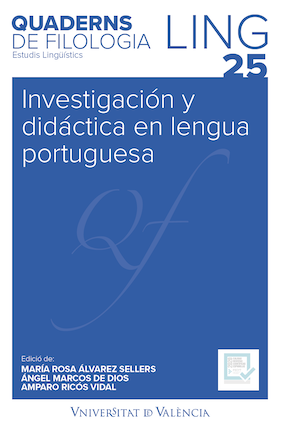The illocutionary act of complaint in interlanguage pragmatics: a case study
DOI:
https://doi.org/10.7203/qf.0.19077Keywords:
pragmatics, interlanguage, illocutionary acts, complaint, portuguese foreign language (ple). Abstract
Abstract
The current paper presents a study that analyzes the illocutionary act of complaint performed by Spanish speakers of Portuguese as a Foreign Language (PLE). It describes the act of complaint by (i) identifying its semantic information (Murphy & Neu, 1996); (ii) tracing realization trends regarding the degree of face-threat (Olshtain & Weinbach, 1993); and (iii) pointing out the main linguistic mechanisms used. Data analysis allows us to draw some conclusions, namely: (i) formal and informal contexts present different semantic formulas; (ii) language choices are highly conditioned by the variables ‘social distance’ and ‘power’; (iii) courtesy strategies are mostly used in formal contexts and may even be absent in informal contexts.
 Downloads
Downloads
Downloads
Published
How to Cite
-
Abstract637
-
PDF (Español)418
Issue
Section
License
 Este obra está bajo una licencia de Creative Commons Reconocimiento-NoComercial-SinObraDerivada 4.0 Internacional.
Este obra está bajo una licencia de Creative Commons Reconocimiento-NoComercial-SinObraDerivada 4.0 Internacional.
Authors who publish with this journal agree to the following terms:
- Authors retain copyright and grant the journal right of first publication with the work simultaneously licensed under a Creative Commons Attribution License that allows others to share the work with an acknowledgement of the work's authorship and initial publication in this journal.
- Authors are able to enter into separate, additional contractual arrangements for the non-exclusive distribution of the journal's published version of the work (e.g., post it to an institutional repository or publish it in a book), with an acknowledgement of its initial publication in this journal.
- Authors are permitted and encouraged to post their work online (e.g., in institutional repositories or on their website) prior to and during the submission process, as it can lead to productive exchanges, as well as earlier and greater citation of published work (See The Effect of Open Access).




